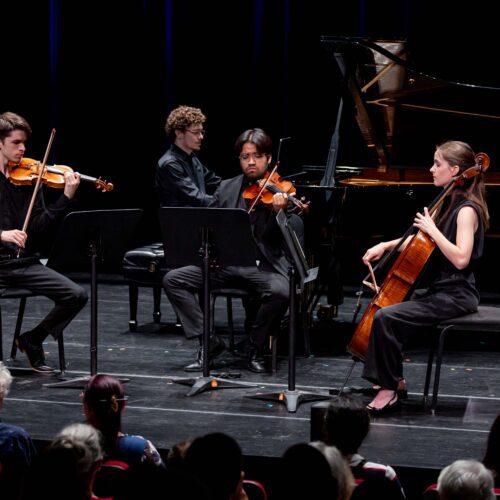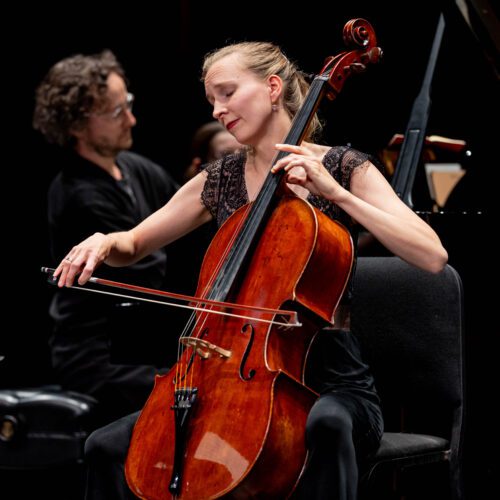A solo album by violinist Emmanuel Vukovich, Resilience is the initiative of a musician who is very close to nature and his community. It symbolically and artistically links his environmental and humanist concerns with his idea of “the capacity for resilience”.
The opus opens with three transcriptions of traditional Turkish, Romanian and Serbo-Croatian melodies by Béla Bartók. Vukovich explores these traditional melodies from different cultures at the intersection of East and West. He also expresses the results of his research into the timbres and sonic textures of these musics, notably gathered from a Harvard University collection of over 30,000 aluminum cylinders of epic oral poetry sung in Serbo-Croatian, recordings by Milman Parry in the 1930s and transcriptions by Bartók at Columbia University at the turn of the 1940s. These arrangements follow in the wake of Vukovich’s doctoral research at Stony Brook University (Long Island, NY) with members of the now-disbanded Emerson String Quartet.
Thus, the violin and the performer’s voice intertwine, a a hurdy-gurdy drone (Philippe Sly, co-arranger) can also support the melodic line, evoking morning splendor, lament, inner suffering or the dazzling state generated by nature and its avian fauna. Once again, the aesthetics of contemporary playing contrast with the distant past of the musical sources, creating an astonishing fusion.
The next piece, “Resilient Earth, Four Caprices for solo violin”, composed for Vukovich by the American Sheila Silver, is in 4 movements, and addresses the album’s theme head-on. The stretching and contraction of the melodic discourse to extremes, right down to the finest high harmonics, is clearly the result of solid compositional reflection. All this is coherent and embodied by a tangible sensuality. What’s more, the complexity of this work is less obvious than one might at first think, given the slowness of several passages. Make no mistake… not easy!
Then comes Béla Bartók’s Sonata for solo violin, an angular work in 4 movements, dense, complex and extremely demanding. In fact, this is the last completed score by the brilliant Hungarian composer, expatriated to the USA, who had to rework it until his death to satisfy the demands of his curator, Yehudi Menhuin. Emmanuel Vukovich undoubtedly shines here.
This is followed by a work by the composer Dinuk Wijeratne, a highly gifted Canadian musician of Sri Lankan origin, associated as pianist with the Silk Road Ensemble of the famous cellist Yo Yo Ma. His three-movement Sonata for violin and piano, composed in 2009 and revised in 2022, is a judicious blend of contemporary Western music and more discreet South Asian melodic inflections, with glissandi exploring almost carnatic intervals. Musically educated in Canada, the UK and the USA, Wijeratne is also an excellent instrumentalist, but it is Katherine Dowling who performs the work on piano alongside Vukovich, a work particularly intense in the3rd movement – Moto Perpetuo.
To conclude this recording, the soloist chose Canadian composer Zosha Di Castri and her “Patina for solo violin”. Patina in the sense of patina, in the textural, multi-layered, timbral sense. A few phrases in this piece have a certain vigor, but the whole is mostly calm, contemplative, anchored in the ground. A soft landing, to be sure, but by no means devoid of substance.
























